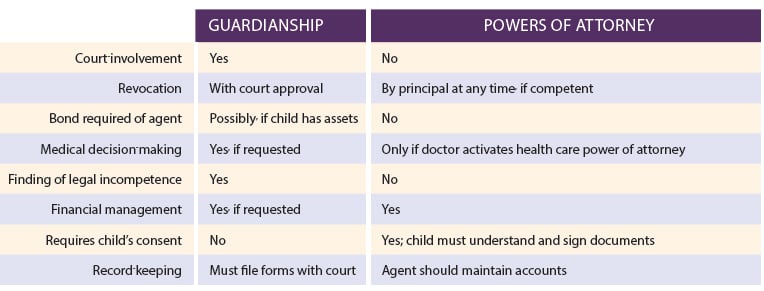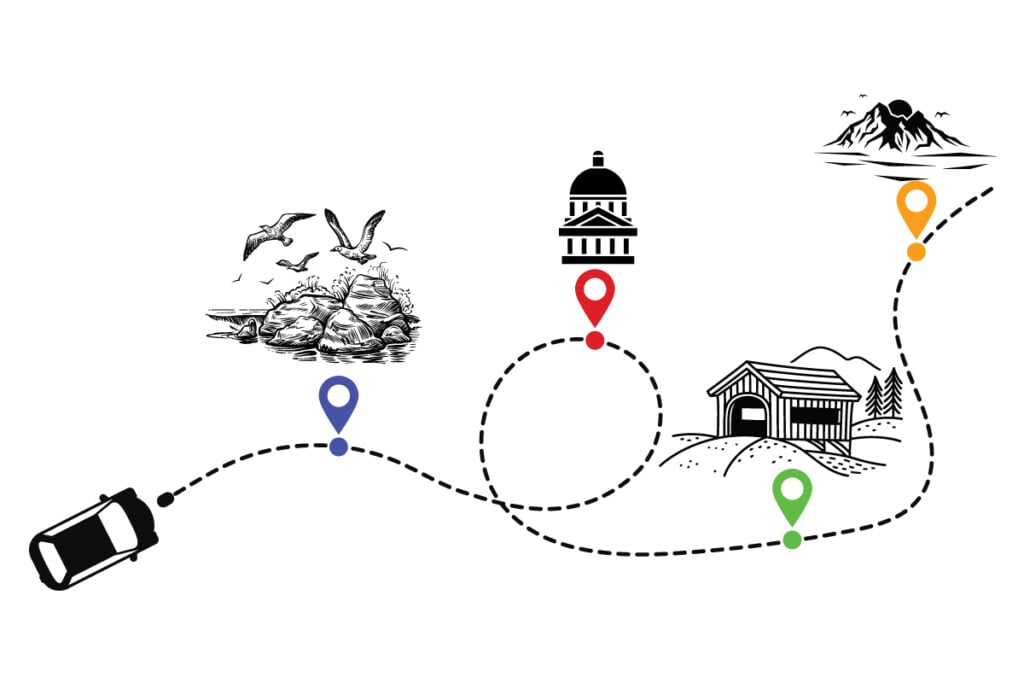Know your options: Alternatives to guardianship
Less restrictive choices, such as Supported Decision Making, may be a better fit for an individual or family
New Hampshire’s Guardianship law requires that before appointing a guardian the court must consider whether there are less restrictive, alternatives to guardianship.
This is because guardianship can result in a significant loss of civil rights and liberties, including the right to decide where to live, the right to marry, the right to vote, the right to bring legal action, how to spend money and whether to accept or refuse medical treatment. In other words, the person loses the right to make decisions about their own life.
In looking to protect the interests of a vulnerable person, guardianship is the most restrictive choice. But there are other less restrictive options such as Supported Decision Making, limited guardianships, or representative payee or power of attorney that may be appropriate.
In Supported Decision Making (SDM) the person with a disability uses one or more trusted people to support them in making their own decisions. SDM can be informal but it can also be a formal written plan that describes who will provide support, when and how. One of the main benefits of SDM is that the person with a disability does not lose their civil rights and does not lose the ability to make decisions about his or her own life. Through the process of SDM the individual is helped to understand their choices, weigh their options and make an informed choice. Another benefit is that the individual has the opportunity to learn and develop decision making skills while utilizing supports.
Limited guardianships are another option where an individual is able to make some decisions on their own, or with support, but they need a guardian to make decisions in specific areas such as complex medical decisions. Instead of imposing a full guardianship, courts can limit the guardianship to only those areas where the individual is unable to exercise decision making. Under a limited guardianship, the individual retains the right to make choices in all other areas of their life.
A representative payee for social security benefits may be a less restrictive alternative for an individual who only needs assistance managing the money they receive from the Social Security Administration (SSA). The representative payee receives the social security payment for the individual with a disability and must use that money for the individual’s needs. The representative payee can be a family member, friend or a professional that gets paid a fee to pay the bills of the vulnerable person.
There is a process where the individual with a disability can notify SSA of any concerns they have with their representative payee and/or ask that a different payee be appointed. The Disability Rights Center — NH, as NH’s Protection and Advocacy agency, has also been awarded a federal grant to review representative payees to make sure they are managing their payees’ benefits appropriately.
If the individual has the ability to make decisions but wants a parent or other trusted person’s assistance, a less restrictive alternative may be for the individual to sign releases of information to allow the individual’s trusted person to have access to their educational or health care information. Similarly, the individual with a disability could consider signing a power of attorney for medical or educational decisions. A power of attorney could be used to authorize someone to make decisions for the individual in areas like finances, education or health care.
One or more of these less restrictive alternatives can be used to meet the needs of the individual. For example, a person might have a representative payee to manage their social security benefits and a durable power of attorney for health decisions but maintain all other decision-making rights such as the right to vote, the right to marry and where to live.
Another person might sign releases so a family member can help them make medical decisions and sign a power of attorney for educational decisions. The alternatives selected can be individually tailored to meet the needs of the person yet allow the individual to retain basic civil rights and the right to make choices about their own life.
If you are already a guardian or a person under guardianship and you think some less restrictive alternative would be more appropriate, you can go to the court that appointed the guardian and request that the court terminate or limit the guardianship in favor of a less restrictive alternative.
For more information on guardianship and alternatives to guardianship, go to www.drcnh.org/issue-areas/guardianship.
Lynne has been an attorney with the Disability Rights Center — NH since 1991. Her years of experience have given her knowledge in many substantive areas of disability practice, including the Americans with Disabilities Act, The Individuals with Disabilities Education Act, Section 504 of the Rehabilitation Act, Juvenile Law, Social Security, Housing and Medicaid.












